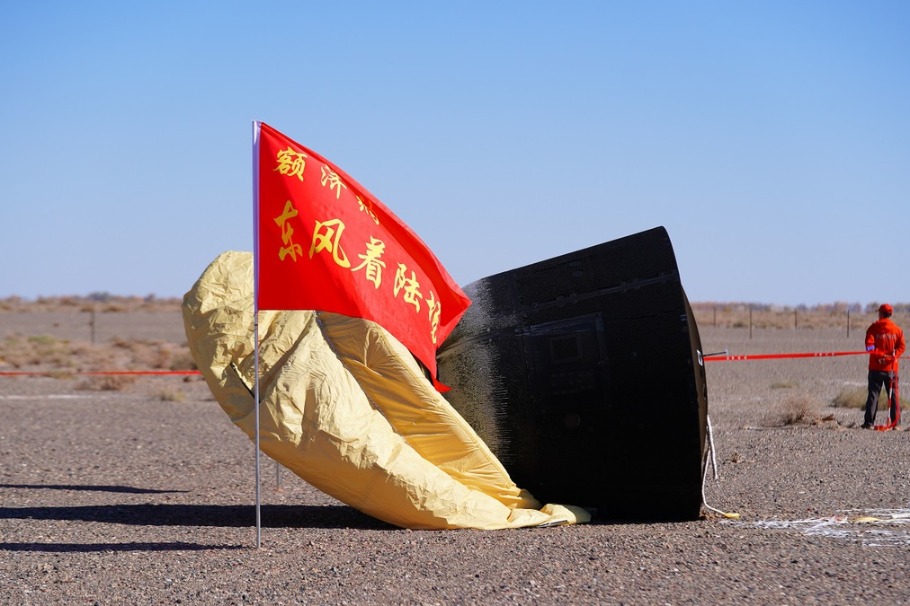CPC set on a path of lasting glory


Since its founding a century ago, the Communist Party of China has led the Chinese people to make remarkable achievements, and since the late 1970s, it has implemented reform in all sectors, at all levels, and across the country while opening up the economy to the outside world.
This is the reason behind the success of the Party's governance philosophy.
First, maintaining social stability is the political prerequisite to China's unprecedented development under the Party's leadership. The Chinese society has been stable for years notwithstanding some minor disturbances, providing the favorable social setting and political foundation for the country's all-round progress.
As President Xi Jinping, also general secretary of the CPC Central Committee, said, the Party has always attached great importance to social stability, especially after the launch of reform and opening-up, and accorded the highest priority to safeguarding national security.
Xi also emphasized the need to overcome the challenges, in order to maintain social stability and take measures to prevent worst-case scenarios.
Second, the Third Plenary Session of the 11th CPC Central Committee in 1978 decided to shift the focus of the Party to socialist modernization. Late leader Deng Xiaoping emphasized the importance of economic development in January 1980, saying that China should make economic development the center piece.
The 13th Party Congress made focusing on economic development the core of the Party's basic line for reaching the primary stage of socialism. And at the 19th Party Congress, Xi stressed that the principal contradiction in the new era is the contradiction between unbalanced and inadequate development and people's ever-growing needs for a better life.
The Party has continued to uphold economic development as its first and foremost priority in order to improve governance and realize national rejuvenation.
The high priority given to and heavy investment made in economic development have helped China realize an average economic growth rate of 9.9 percent from 1979 to 2011 and about 7 percent since then. As a result, China has become the second-largest economy in the world and its comprehensive strength growing manyfold.
Third, an effective market and an efficient government have facilitated China's inclusive and booming development under the Party's leadership. The relationship between the government and the market has always been in theoretical focus but difficult to practice. But the Party has managed the relationship appropriately, thanks to its adherence to dialectics.
At the beginning of reform and opening-up, the relationship between the government and the market was caught in the debate on "planning and market". It was then that Deng emphasized that "market economy could be developed by a socialist country".
While the 14th Party Congress established a socialist market economy system, the Third Plenary Session of the 18th CPC Central Committee made a clear-cut distinction between regulations and the functions of the government and the market.
Along with China's development, the relationship between the government and the market has revealed different characteristics. In the beginning, the government was the most important force cultivating the market. But with the maturing of the market, the government has been reducing administrative intervention and focusing more on providing better services for the market.
On the one hand, the government has been more swiftly meeting the requirements of market economy by changing its functions, and on the other, it has allowed the market to play a leading role in the allocation of resources. Which has helped combine the market's effectiveness and the government's efficiency in a most beneficial way and propelled the rapid development of the economy.
Fourth, by continuing to open up the economy, China has ensured the continuous and rapid development of the country. This is in line with the decision of the Third Plenary Session of the 11th CPC Central Committee, which said China should forge economic cooperation with other countries on the basis of the country's self-reliance.
Opening-up has since become China's basic economic policy and a guideline that Chinese leaders have continued to follow. Opening-up has also enabled China to access the international market and abundant international resources, and helped maintain the momentum of the global economy, as for years, China has been contributing more than 30 percent to global economic growth.
More important, the Party has been governing the country to serve the Chinese people. As Xi has said, serving the fundamental interests of the great majority of the Chinese people is the starting point and ultimate objective of all the Party's works and whether the Chinese people support, approve and are happy should be the basis of policymaking. Indeed, the Party has gained the support of the Chinese people by following people-centered policies.
The Party has also introduced some valuable practices such as the dissemination of socialist core values.
True, China has encountered a few setbacks including the damage to the environment and ecology by following a policy of unfettered economic growth. But it has learned its lessons and has been taking corrective steps.
And this is precisely why the CPC has succeeded, and will continue to succeed, in achieving its goals.
The views don't necessarily reflect those of China Daily.
The author is a professor at the Party School of the CPC Central Committee.
If you have a specific expertise, or would like to share your thought about our stories, then send us your writings at [email protected], and [email protected].


































